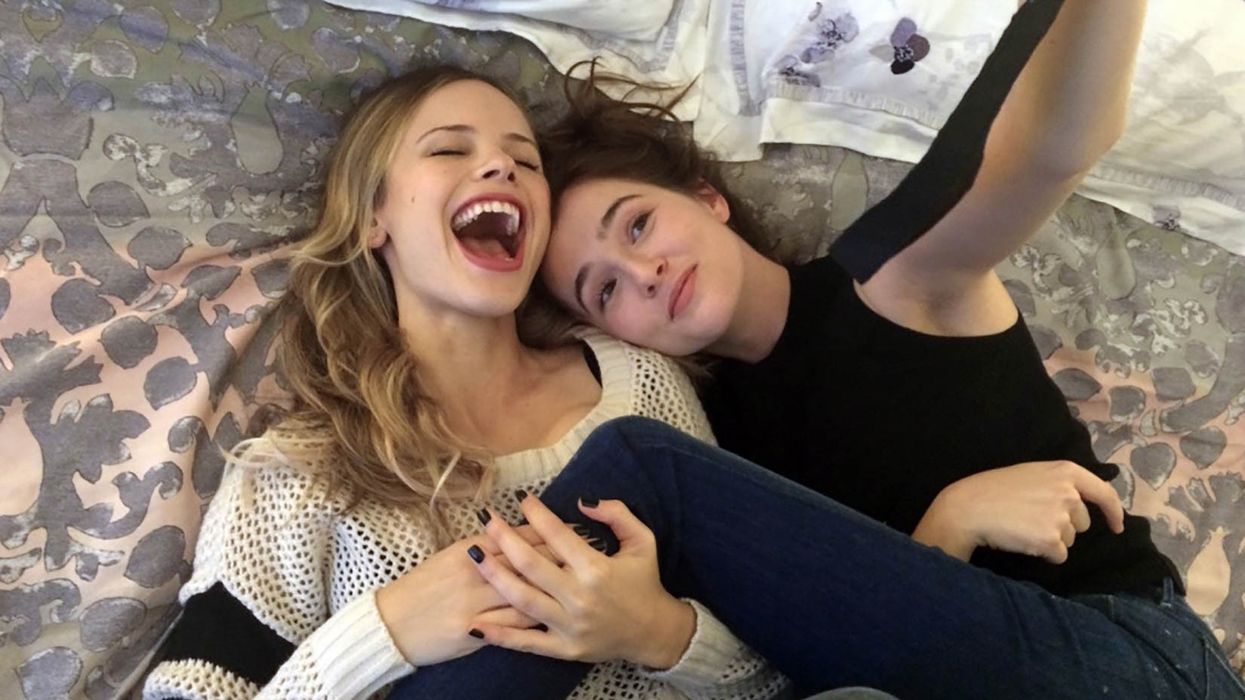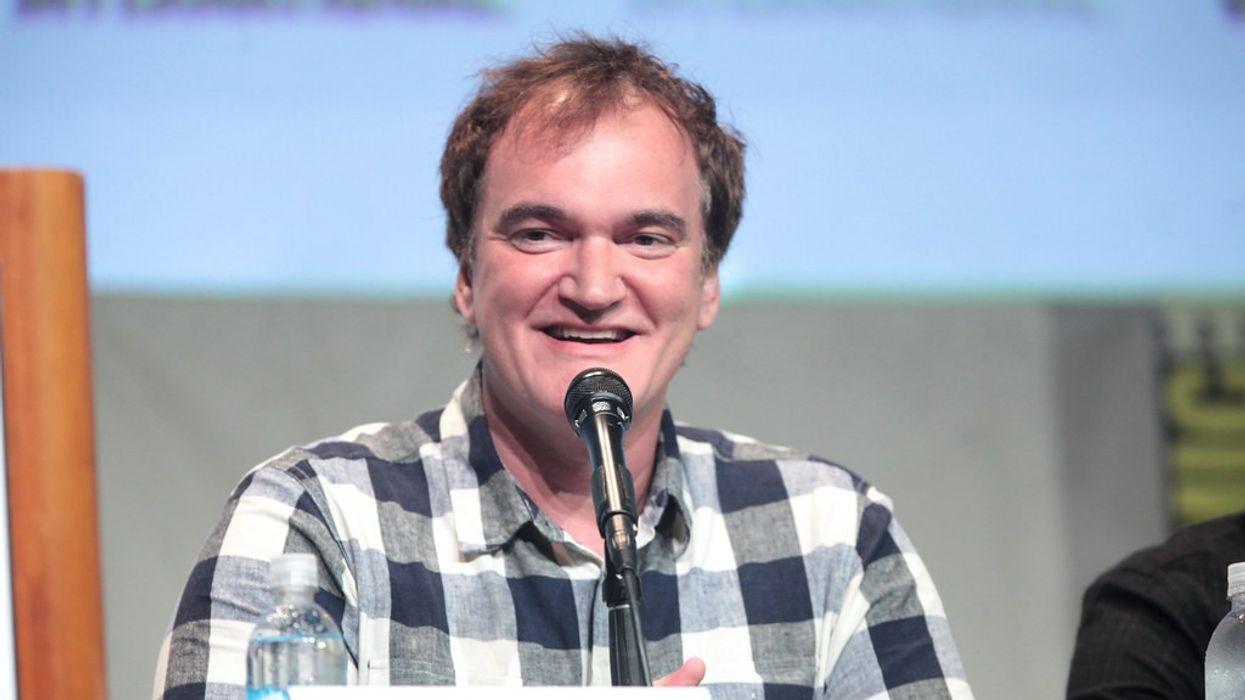'Before I Fall': Ry Russo-Young on Achieving Hollywood-Level Visuals with an Indie Budget
The rich, cinematic look of 'Before I Fall' belies its modest budget.

Ry Russo-Young's Sundance premiere Before I Fall achieves success where many films of the coming-of-age oeuvre fail: imbuing its execution with a certain level of depth. Russo-Young, who has helmed two previous Sundance features, You Won't Miss Me (2009) and Nobody Walks (2012), made this film in part because of the chance to tell a layered story about teenage girls.
Based on the YA novel by Lauren Oliver, the film follows an incessantly repeating day in the life of high school senior Sam, played capably by Zoey Deutch, after she has been in a presumably fatal car accident. Each time we see the loop, it changes slightly based on Sam’s own actions and reactions. The story touches on themes of afterlife, friendship, and morality, and contemplates a fundamental question of humanity: can we change?
Before I Fall has the potential to become a staple in the teen movie canon, but perhaps most impressive are its production values. Despite its modest budget, it looks like a film with studio backing, due to its richly layered visuals and moody Pacific Northwest aerial shots. And this, of course, was by design. No Film School spoke with Russo-Young the day after the film's world premiere screening about how her team achieved the look, commanding a set without shouting, and more.
"A lot of teen movies were always in the reds, and were always over-lit, and I didn't want to do that."
NFS: In the post-screening Q&A, you talked about how the time-loop device used in your film is an age-old thing. How did you make it your own?
Russo-Young: I guess a huge part of what differentiated this movie for me from other time-based movies of its kind was that it's so emotional. Groundhog Day is emotional, but it's a comedy, and this is very existential, which makes it so subjective. It is very much from Sam's perspective, so the filmmaking takes its cues from her psychology, which is different every time she repeats the day. The character sort of drives the time loop.
NFS: The production values are so high, but presumably it's a low-budget indie feature.
Russo-Young: Yes, I don't think people realize how quickly we shot and how financially small this movie was. We shot in 24 days.
NFS: Wow. Tell me about some of the technical decisions you made around shooting and lighting to make it look so good?
Russo-Young: The DP, Michael Fimognari, and I always wanted the movie to look bigger. That was the goal: to make a movie that looked more like a studio movie, but with taste. Not over-lit, no pop colors—a lot of teen movies were always in the reds, and were always over-lit, and I didn't want to do that.
I wanted to exist in a moodier, foggier world, which felt more indicative of Sam's psychology. A big part of that came from shooting on Alexa with anamorphic lenses. Shooting on anamorphic added a sense of scope to the film.
"Shooting on anamorphic added a sense of scope to the film."
NFS: I also noticed a lot of drone footage. Did the drone shots have a special significance?
Russo-Young: Well, I didn't want to start the movie with the camera flying through the clouds, which is a cliché of a movie from a dead person's perspective, where you do the boom up at the end, or you crane up on their body as they're lifting into heaven. I tried to avoid direct heaven or religious references.
The drone was a way to get scope and show the landscape, which had significance metaphorically for the movie, in a way that was very visual and showed us her world.
NFS: It looked to me like there were subtle visual differences between the first time we see Sam's day and then the various repeating loops. Was that my own reaction to the story, or were you doing that purposely?
Russo-Young: We did a lot of things on purpose. There was everything from duration of shots on day one, like the party scene was very cut-up, and very fast. It's cut like an aggressive, fun teen movie. But on day two, we hold on her for a very long time, and you're only staying with her for her whole walk through the party. There's a lot more wides on day one, and more close-ups on day two.
For example, on day two, we used a lens in an early scene that specifically gives a fog and a haze to Sam and contrasts very greatly to Lindsey's [Sam's best friend, who is not stuck in the same time loop] shot, which is super crisp and clear. We also named all the days, so that Zoey and I were really clear on Sam's psychology. We called that foggy day two “Xanax Day,” for example.

NFS: Speaking of Zoey, I loved how she publicly praised you on stage during the Q&A.
Russo-Young: I can't take a compliment. It's really hard for me. I feel so warmly towards her that I'm like, “How can you say this about me when I feel so lucky to have worked with you?” She has massive talent.
NFS: The thing I really like that she said was that you commanded the whole set without shouting. What is your directing philosophy, and how do you achieve it on set?
Russo-Young: I'm extremely collaborative and that's part of why I don't want to do this alone. A director can be a lonely job in a way, but I feed off other people's energy and creativity and ideas. It's so much about who you work with, you know?
Like our editor Joe Landauer was incredible. He's my buddy and my partner and he helped me make a great movie. We made this movie together. He had incredible ideas and I learned from him. The same is true of Zoey. She was my collaborator. She pointed out things to me in the script in advance of shooting that I didn't see and I thought about them, and really it's the back and forth that is the fun part.
"I was just going to do what was best for the movie and let the chips fall where they may."
NFS: I think that's the type of director that actors love to work with.
Russo-Young: And everybody, not just actors. There are so many people that we don't even consider when we have these conversations. From the production designer to the art director, to the person that's on set every day. All those people are so important.
NFS: On the flip side of that, how do you ensure that everyone knows that their voices are welcome, but also make it clear to everyone that you're the boss at the end of the day?
Russo-Young: Yeah, it is hard. At the end of the day, you do what you think is best. You hear everybody's ideas. I'm open to suggestions and I love the creativity and the back and forth, but it doesn't mean that I'm going to take every suggestion. I take the ones that resonate with me and help make the movie better, and disregard the rest.
One thing I will say from being a female making a movie is that, from the very beginning of making this movie, I made a decision to myself I wasn't going to care what people thought of me on set. This came from having made other movies and not having done this. This time, I wasn't going to worry if people liked me or not; I was just going to do what was best for the movie and let the chips fall where they may.

That doesn't mean I was an asshole. I'm not a yeller. But I wasn't going to waste my brainspace caring, because I have done that in the past and I think a tendency of female directors to worry a little too much about what other people think of us. I know that I do that, so I just took it off the table and I think it helped me be a better director.
"The more I direct, the more I realize how much I can learn from the people around me."
NFS: Now that you've made several features, what else can you share with other filmmakers that you've learned from your experiences?
Russo-Young: There's two big things. One: it is a process. I think Miles Davis said, "It takes a long time to become who you are." I think filmmaking is a craft that you have to practice. We're so obsessed with the prodigies who make one thing and it's amazing and then they win an Oscar, but a lot of people have to make a bunch of films and keep practicing what they're doing to get to something that they're meant to make. I think perseverance and practice and hard work are the important things.
Here's the other thing. When I was younger, I was so insecure as we all are, and so afraid of making something bad and failing. We worked so much from fear and I think sometimes that makes you have an ego and you want to take a lot of credit or you don't want to be hurt or whatever.
"That’s the other piece of advice I have: prep and prep and prep and prep."
Actually, the more I direct, the more I realize how much I can learn from the people around me. I don't have to have all the answers. It takes great confidence to acknowledge that you don't know everything. People ask you questions on set all the time. It's okay to say, "I need a few minutes to think about that." It doesn't make you weak, it makes you strong.
If you really know the material, then you can answer it quickly, but a lot of the times people will ask you things during prep that you might not know the answer to yet. They"ll ask you early, but you just have to protect the prep time. That's a big thing.
That's the other piece of advice I have: prep and prep and prep and prep. You can never be too prepped. You gotta know that script like the back of your hand.

NFS: Some directors we talk to do a lot less prep, thinking it makes them more open on set.
Russo-Young: I do think that it's actually about prepping as hard as you possibly can so you know everything, so then you can be open on set. Because you have the confidence and faith to know what you're doing. There is going to be shit that happens where you're going to have to rethink stuff, right?
"The room is twice as small, what are we going to do? Do we have to move the scene outside?" If you know what the scene is really about, and you totally understand what it is, then you can say, "Oh yeah, we can shoot this outside because it still makes sense, because the characters don't need to be walking, they can be standing or whatever."
If you don't really know the material as much or you're not prepped to have that, then you are making that decision based on nothing and you don't know what the fuck you're doing. It's a combination of prep so that you can be free.
For more, see our complete coverage of the 2017 Sundance Film Festival.












